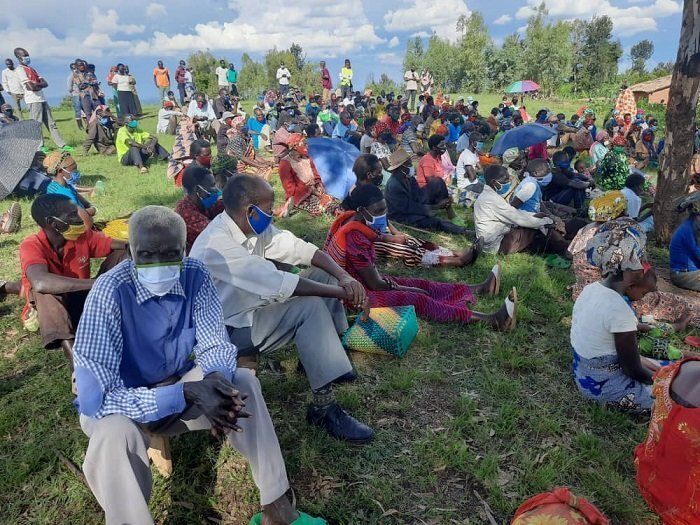Since March 14, 2020, when the first Covid-19 patient was found in Rwanda, measures have been taken to prevent new infections from the epidemic, including the suspension of public meetings, such as assemblies and mass gatherings, leading the citizens to work with the authorities to tackle problems through Community Groups ‘Amasibo’.
Some residents of Murundi sector in Karongi district say that the fact that these assemblies are no longer meeting in order to prevent Covid-19, has affected the resolution of the issues that were being addressed in these assemblies, but they insist that they have chosen to find solutions from within by using community groups to solve their problems.
Noheli Icyitegetse, a resident of Gisebeye village in Kareba cell, said that although the assemblies are no longer in order to prevent Covid-19, they are now using community groups known as ‘Isibo’ or ‘Amasibo’ to solve the problems around them, unless these groups do not solve all their problems as sometimes it requires them to be sent to a cell or sector.
“Coronavirus has been a burden for us but community groups help us because some of the problems are solved, only sometimes they are not gathered because some of the citizens go in farms to cultivate, and sometimes it requires waiting for the mediators or when the assembly will meet again.
On the other hand, Louise Mukantwari from Cyisenge village in Nyamushishi cell says the effects of Coronavirus are obvious because where the assemblies no longer exist they use community groups to solve problems.
Murundi Sector Executive Secretary Mudacumura Aphrodis said that Coronavirus disrupted many things, noting that they use community groups by complying with covid-19 prevention measures to address current public complaints.
He added that while using this method it is not fully productive and reminds citizens of the sector to continue to adhere to the measures taken to prevent Covid-19 so that when it gets out of the way, the citizens’ assemblies will be restored and the problems will continue to be resolved as before.
He requested everyone as well to take part in informing leaders of existing issues to get quick help through community groups, at the cell, sector or district.
On behalf of the Karongi district administration, Mukase Valentine, the vice mayor for social affairs said that despite the ban on assemblies, the community groups continue to make a significant contribution towards addressing citizens’ complaints.
Each village in Rwanda is currently divided into the so-called “isibo”, which is run by the Intore yo ku mukondo, co-chaired by Intore yo ku ruhembe rw’iburyo and Intore yo ku ruhembe rw’ibumoso.
The Intore Code stipulates that in the most densely populated parts of the city, the community group ‘Isibo’ must have 30 households, while in rural areas it must be between 15 and 20 households.
The Express News










